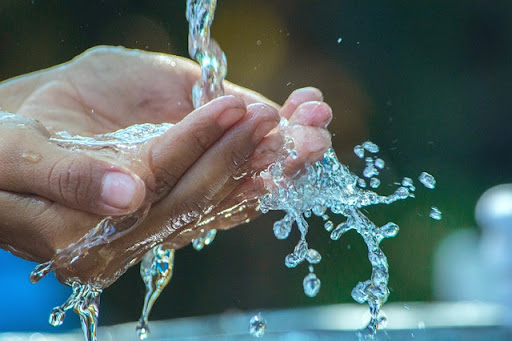 According to retired pharmacist and women’s health advocate Marla Ahlgrimm, dehydration is a condition that happens when the body loses more fluid than it takes in. It can happen to anyone, but women are particularly vulnerable to dehydration simply due to biology. But what can dehydration do to a woman?
According to retired pharmacist and women’s health advocate Marla Ahlgrimm, dehydration is a condition that happens when the body loses more fluid than it takes in. It can happen to anyone, but women are particularly vulnerable to dehydration simply due to biology. But what can dehydration do to a woman?
Impact On Skin Health
One of the most visible effects of dehydration is on the skin. When the body is dehydrated, Marla Ahlgrimm says, the skin becomes dry, flaky, and loses its elasticity. This can cause premature aging, fine lines, and wrinkles, making women look older than they are, and none of us want that. Dehydration can also make the skin more prone to acne, psoriasis, and other pesky and uncomfortable skin conditions.
Menstrual Problems
Dehydration can also lead to menstrual problems in women. When the body is dehydrated, it can affect the balance of hormones in the body, leading to irregular periods, cramps, and even amenorrhea (Marla Ahlgrimm explains that this means the absence of periods). Women who are dehydrated during their period may also experience more severe cramps, headaches, and bloating that over-the-counter medicines won’t touch.
Urinary Tract Infections
Women are already more prone to UTIs than men, and dehydration can increase the risk of these. When you don’t drink enough water, you produce less urine, which can cause bacteria to accumulate in the bladder and urinary tract. Marla Ahlgrimm warns that this can lead to inflammation, pain, and burning during urination.
Breast Milk Production
Not drinking enough water can also hurt breastfeeding mothers as well. When a woman is dehydrated, it can reduce her breast milk production, making it difficult to provide enough nutrition to the baby. Marla Ahlgrimm laments that this can trigger a host of problems, including malnutrition, stunted growth, and developmental delays. While each of these is a “worst-case scenario” situation, women must understand the significance of drinking enough water.
Cardiovascular Health
Dehydration can have a big impact on heart health, particularly in women. A lack of water can cause the blood to thicken, which understandably makes it harder for the heart to pump throughout the body. Marla Ahlgrimm says that stress on the heart can lead to stroke, heart disease, and other issues.
Cognitive Function
Dehydration can also affect cognitive function in women, says Marla Ahlgrimm. When the body is dehydrated, it can cause fatigue, dizziness, and confusion, as if we don’t already have enough distractions when we are trying to concentrate. Marla Ahlgrimm says this might cause everything from accidents and mistakes to decreased productivity.
Kidney Function
Not drinking enough water also affects the kidneys by making them work harder to remove waste products from the body. Marla Ahlgrimm says that kidney stones are one of the most feared and painful side effects of chronic dehydration.
Preventing Dehydration
Preventing dehydration in women is crucial for maintaining overall health and well-being. But Marla Ahlgrimm says it’s not enough to simply drink enough water (although that’s still important). To maintain adequate hydration levels, she suggests:
- Drink enough water. Drink at least eight glasses of water a day to stay hydrated. Drinking water throughout the day can help prevent dehydration and flush out toxins from the body.
- Eat water-rich foods. Women should also eat lots of water-rich foods, such as watermelon, cucumbers, tomatoes, and strawberries. These foods can help keep the body hydrated and provide essential nutrients. Plus, they go well in salads!
- Avoid caffeine and alcohol. Coffee and alcohol can rob the body of important water stores. Marla Ahlgrimm says there’s nothing wrong with having a cup of coffee or a glass of wine now and then, but stick to moderate amounts and always drink enough water to offset any losses.
- Exercise regularly. Exercise can help regulate the body’s water balance, so most healthy women should aim to exercise for at least 30 minutes a day. Marla Ahlgrimm says it’s best to talk with your primary healthcare physician if you have any concerns.
- Monitor urine color. While nobody wants to stare into the toilet, women who think they are dehydrated should pay attention, as dark yellow or brown urine can indicate dehydration.
 The moral of the story here, says Marla Ahlgrimm, is that all women should strive to drink enough water each day, eat the right foods, and avoid bad habits that can cause dehydration. If you don’t like water, you can always flavor it with fruit or zero-cal sweeteners.
The moral of the story here, says Marla Ahlgrimm, is that all women should strive to drink enough water each day, eat the right foods, and avoid bad habits that can cause dehydration. If you don’t like water, you can always flavor it with fruit or zero-cal sweeteners.













 Marla Ahlgrimm has co-authored two ground-breaking books,
Marla Ahlgrimm has co-authored two ground-breaking books,